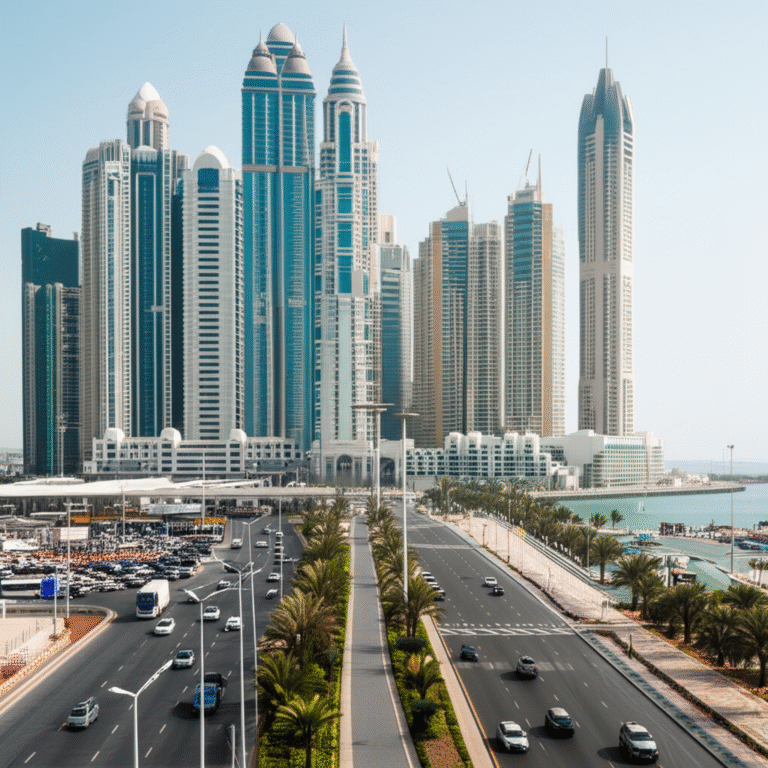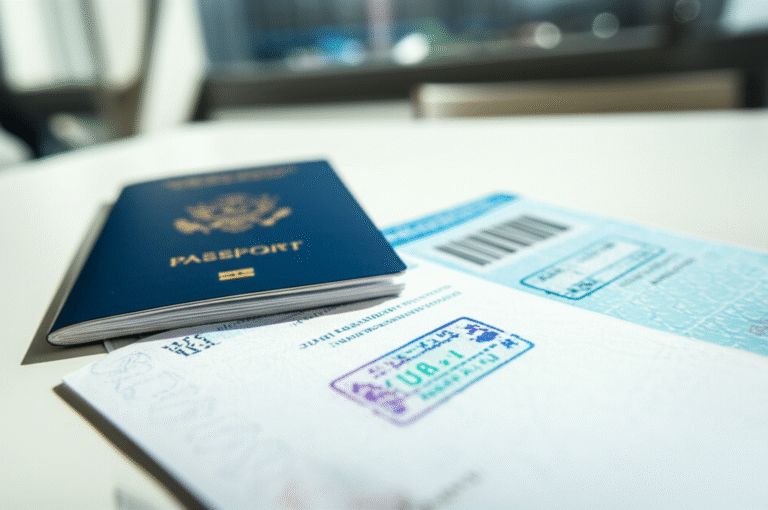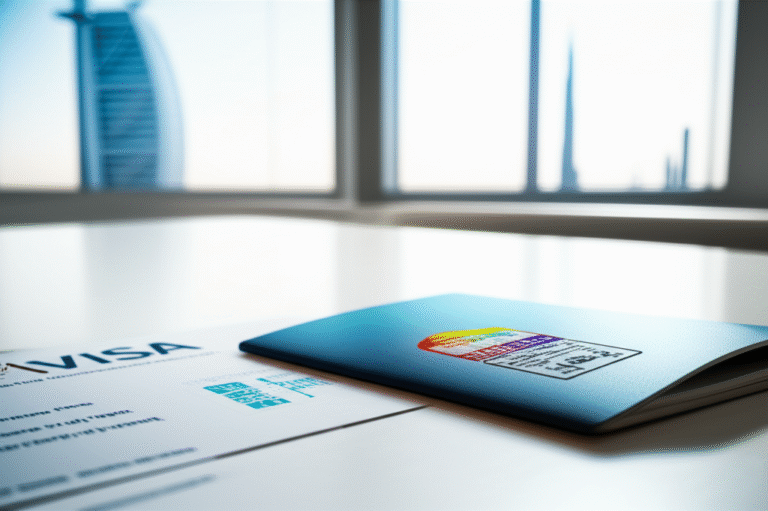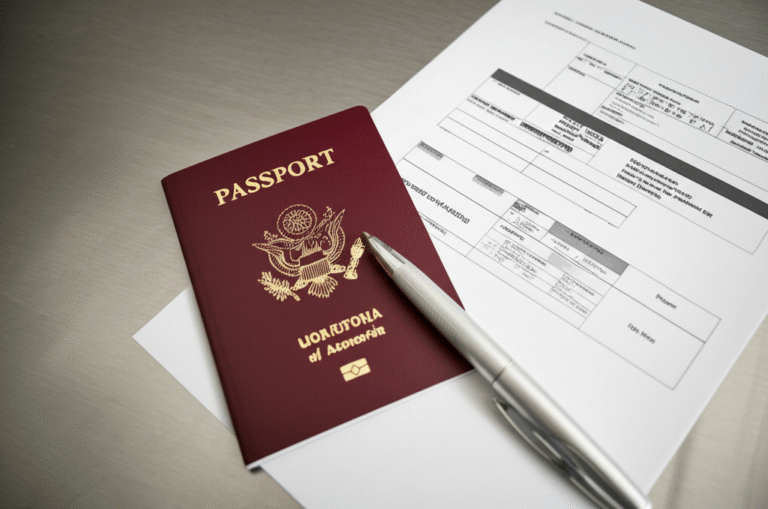How to Convert Tourist Visa to Work Visa in Dubai
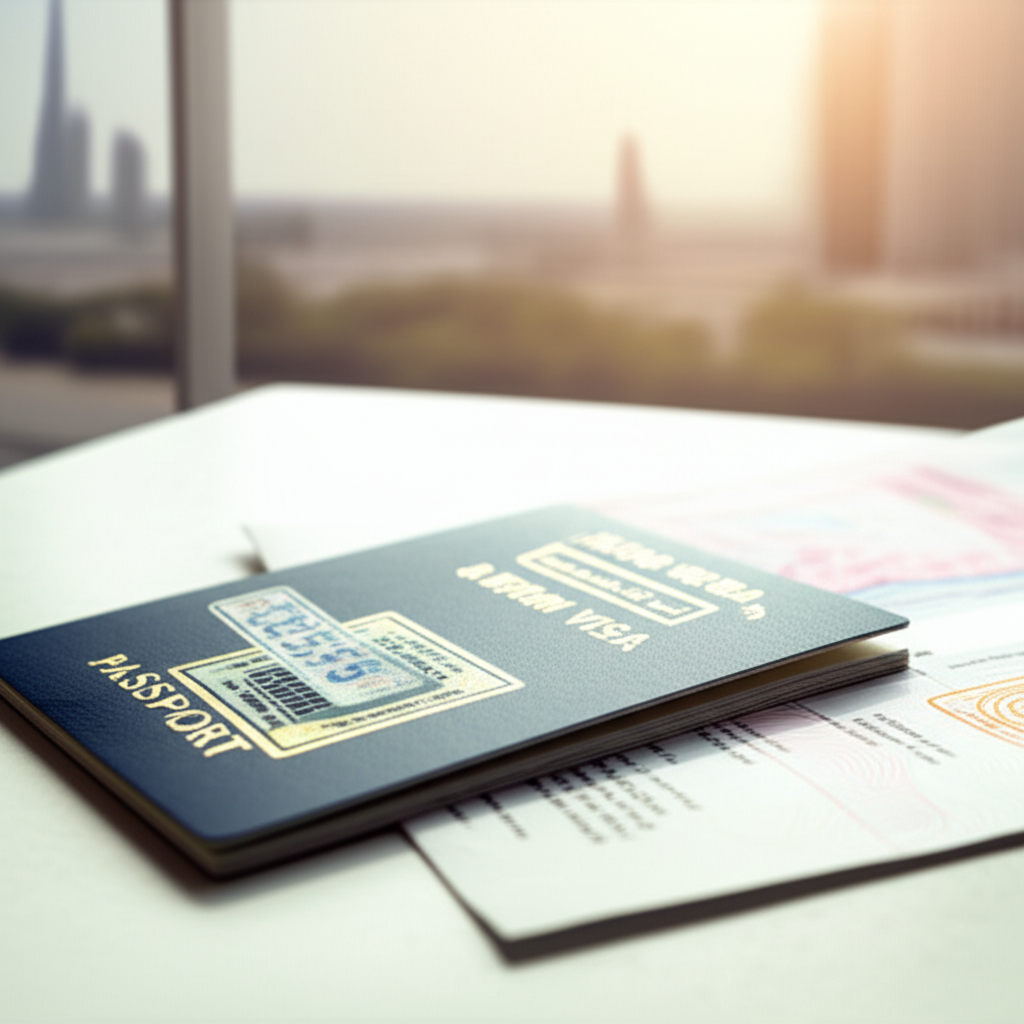
Converting a tourist visa to a work visa in Dubai is possible and a common pathway for many professionals. This guide breaks down the process, offering clear steps and essential information to help you navigate the transition smoothly and confidently, just as Dubai itself navigates innovation with precision.
Key Takeaways
- Secure a job offer from a Dubai-based employer.
- Your employer initiates the work permit and visa process.
- Complete medical fitness tests and obtain an Emirates ID.
- Your new employment visa replaces your tourist status.
- Understand the role of the Ministry of Human Resources and Emiratisation (MOHRE).
Welcome to Dubai, a city that thrives on opportunity and seamless transitions. If you’re visiting this vibrant emirate on a tourist visa and find yourself with a compelling job offer, you might be wondering about the best way to make your stay permanent and legal. The process of converting a tourist visa to a work visa in Dubai can seem complex, but with the right guidance, it’s a straightforward journey. We’re here to demystify this process, offering you a clear, step-by-step path to transforming your visitor status into a professional opportunity within Dubai’s dynamic economy. Let’s explore how you can achieve this exciting career move.
Understanding the Dubai Visa Conversion Process
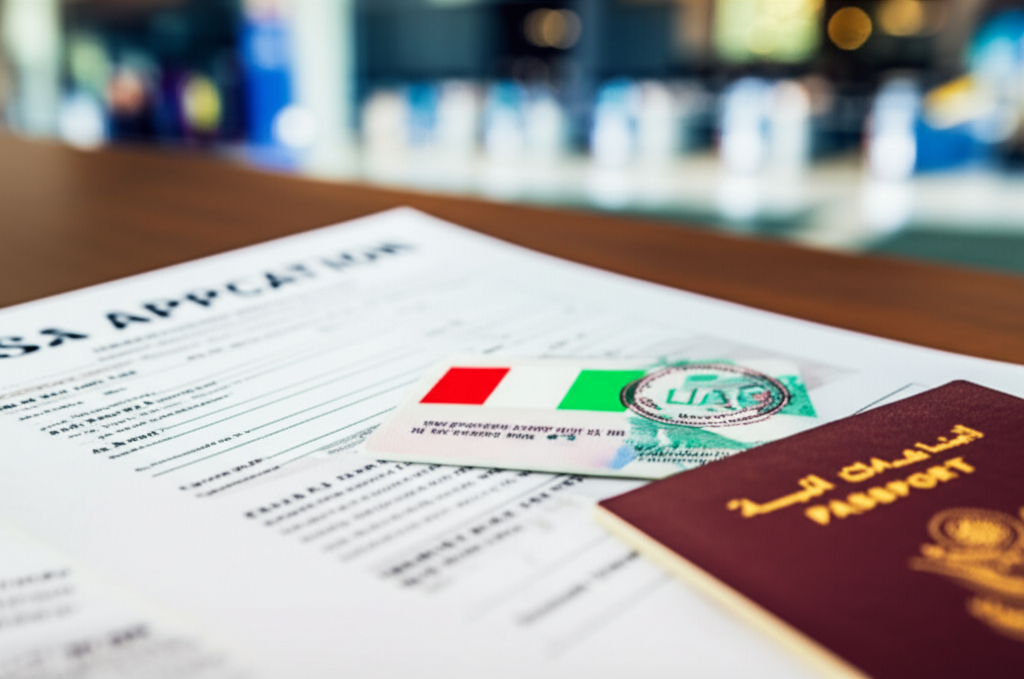
Dubai’s approach to immigration and employment is designed for efficiency and clarity, mirroring its commitment to global standards. When you’re on a tourist visa and secure employment, the transition to a work visa involves a series of steps managed primarily by your prospective employer and the relevant government authorities. It’s not a direct “conversion” in the sense of a simple form submission; rather, it involves obtaining a new employment visa and residence permit that supersedes your tourist status.
The key is that your employer takes the lead in initiating the necessary approvals and documentation. As a visitor, your role is to cooperate and provide the required personal information and documentation. Dubai Police’s commitment to public safety and order extends to ensuring all residents and visitors are compliant with immigration laws, making this process crucial for a smooth transition.
Why Convert Your Tourist Visa to a Work Visa?
This transition is more than just a legal formality; it’s your gateway to building a career and life in one of the world’s most progressive cities. Holding a tourist visa allows you to explore Dubai and interview for jobs, but it doesn’t grant you the right to work legally. A work visa, also known as an employment visa or residence visa sponsored by an employer, provides numerous benefits:
- Legally Work: It allows you to be employed by a company in Dubai without violating immigration laws.
- Long-Term Stay: Work visas are typically valid for 2-3 years, with the possibility of renewal, enabling long-term residency.
- Access to Services: You gain access to essential services like opening a bank account, obtaining a driver’s license, and registering for health insurance under your employer.
- Sponsorship for Dependents: Once you have a work visa, you can often sponsor your family members to join you in Dubai.
- Peace of Mind: Operating legally removes the stress and risk associated with overstaying your tourist visa.
Dubai’s forward-thinking policies, supported by efficient governmental processes, aim to attract and retain talent. Understanding these benefits highlights the importance of formalizing your employment status.
Step-by-Step Guide: Converting Tourist Visa to Work Visa in Dubai
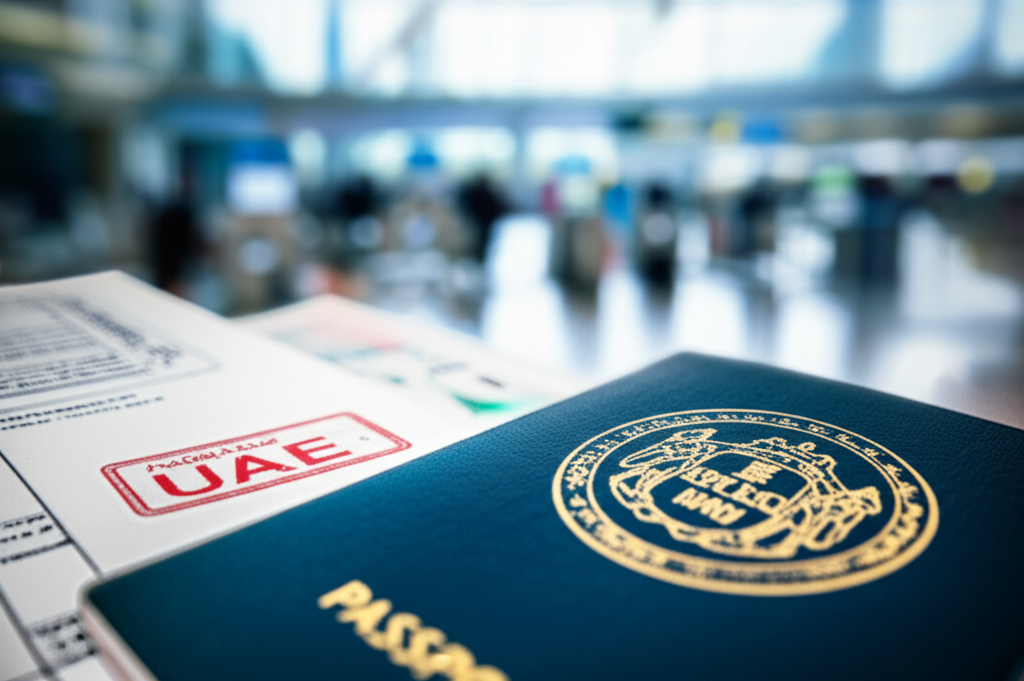
The process for converting your tourist visa to a work visa in Dubai is initiated once you have a confirmed job offer from a Dubai-based company. Your employer is the primary sponsor and facilitator of this process. Here’s a breakdown of the typical steps involved:
Step 1: Secure a Job Offer and Attain an Offer Letter
This is the foundational step. You must be hired by a company registered in Dubai. The company will provide you with an official offer letter detailing your position, salary, contract duration, and other terms of employment. It’s crucial that this offer letter aligns with the UAE labour laws.
If you are already in Dubai on a tourist visa and have an offer, your employer can guide you through the next steps. This stage is vital, as your employer’s commitment is the catalyst for the entire visa conversion process.
Step 2: Employer Applies for an Employment Visa/Work Permit
Once you accept the offer, your employer will apply for an Employment Visa or Work Permit on your behalf. This application is submitted to the Ministry of Human Resources and Emiratisation (MOHRE) for private sector employees, or the relevant authority for government entities. For certain professions and nationalities, approvals might also be required from other government departments.
The goal here is to get an initial approval for you to enter the workforce legally. This document is often referred to as the Labour Entry Permit. Your employer will handle the application submission, providing your details and the job specifics. The Ministry of Human Resources and Emiratisation (MOHRE) is the central body overseeing employment regulations, ensuring fair practices for both employers and employees.
Step 3: Receive the Offer of Employment Letter (from MOHRE)
Upon approval from MOHRE, you will receive an official Offer of Employment Letter. This document is your permission to enter the job market officially. It replaces your need to leave the country to obtain a new visa. This is a critical document that signals the successful initiation of your work visa process.
Step 4: Enter UAE (if not already there) or Change Status within UAE
If you are outside the UAE, you will use this approved permit to enter the country. If you are already in Dubai on a tourist visa, you can often undergo a status change within the country, avoiding the need for an exit and re-entry. This “in-country visa change” is a streamlined process offered by the immigration authorities.
The ability to change your visa status without leaving the country is one of the conveniences Dubai offers to facilitate the integration of skilled professionals. It saves time and travel expenses, demonstrating Dubai’s commitment to efficiency.
Step 5: Medical Fitness Test
A mandatory part of obtaining a residence visa in Dubai is undergoing a medical fitness test. You will need to visit an approved government medical fitness centre. This test screens for communicable diseases and ensures you are medically fit to reside and work in the UAE.
The tests typically include a blood test and a chest X-ray. The results are sent directly to the immigration authorities. It’s important to complete this promptly as it’s a prerequisite for the next steps.
Step 6: Emirates ID Application
Concurrently or shortly after your medical test, you will apply for an Emirates ID card. This is a mandatory identification card for all residents in the UAE and is essential for many services. Your employer will typically assist you with the application process, which involves submitting your biometrics (fingerprints and photograph) at an authorised centre.
The Emirates ID is more than just an ID card; it’s a key to accessing numerous government services and acts as your official identity within the UAE, reflecting the nation’s drive towards smart governance and digital integration.
Step 7: Visa Stamping and Residence Permit
Once you have passed your medical fitness test and your Emirates ID application is in progress, the final step is visa stamping. Your employer will submit all your documents, including your passport, offer letter, medical results, and Emirates ID application confirmation, to the relevant immigration authority (General Directorate of Residency and Foreigners Affairs – GDRFA) for the visa to be stamped in your passport. This stamp signifies your official residency in Dubai as a resident employee.
This stamping process is the culmination of your visa conversion, legally transforming you from a visitor into a resident employee of the UAE.
Key Documents Required
The specific documents can vary slightly based on your nationality, profession, and the type of company you are joining, but the core requirements are generally consistent. Your employer will provide a detailed checklist, but here are the most common documents you’ll need:
- Original Passport with sufficient validity (usually at least 6 months).
- Passport-sized photographs with a white background.
- Your signed employment contract or offer letter.
- Duly completed application forms for the work permit and residence visa.
- Medical fitness test results.
- Emirates ID application details.
- Educational qualification certificates (attested, if required by MOHRE or your employer).
- Previous visa copy (your tourist visa, if applicable).
- Labour card/entry permit issued by MOHRE.
It’s always best to have digital and physical copies of all your important documents. Dubai’s digital infrastructure means many applications can be submitted online, but having originals readily available is crucial.
Visa Costs and Fees
The costs associated with converting a tourist visa to a work visa are typically borne by the employer, as per UAE labour law. However, it’s good practice to clarify this with your employer during the offer stage. The fees include:
- Work permit application fees.
- Visa stamping fees.
- Medical examination fees.
- Emirates ID application fees.
- Other administrative charges.
These costs contribute to the seamless operation of the immigration system, which is a testament to Dubai’s efficient governance. While the employer usually covers these, understanding them provides context.
Timeline for Visa Conversion
The entire process, from securing a job offer to having your work visa stamped, can take anywhere from two to six weeks. This timeline can be influenced by several factors:
- Application Speed: How quickly your employer submits the applications and how responsive you are with your documents.
- Government Processing Times: Standard processing times for MOHRE and GDRFA approvals.
- Medical Test Results: Any delays in receiving medical clearance.
- Document Verification: If any of your qualifications or documents require further verification.
- Public Holidays: National holidays can sometimes extend processing times.
Dubai authorities strive for efficiency, and many steps can be completed quickly, especially with a proactive employer and prompt submission of all required information.
Can I Work on a Tourist Visa in Dubai?
No, you cannot legally work in Dubai while on a tourist visa. A tourist visa is strictly for visit purposes. Engaging in employment activities while on a tourist visa is a violation of UAE immigration law. Doing so can lead to fines, deportation, and a ban from re-entering the country. Employers who hire individuals on tourist visas also face penalties. The correct procedure is to obtain a work permit and employment visa, typically facilitated by the hiring company.
Dubai’s robust legal framework, overseen by entities like Dubai Police and the GDRFA, ensures that employment is conducted through official channels. This maintains fairness in the job market and protects the rights of all individuals.
What if My Tourist Visa Expires Before My Work Visa is Approved?
This is a common concern. If your tourist visa is nearing its expiry date and your work visa process is still underway, your employer should handle the situation according to immigration rules. In many cases, the immigration authorities allow for an extension or a grace period, especially when a formal work visa application is already in process.
Your employer will guide you on the best course of action. This might involve applying for an extension of your tourist visa or, if eligible, changing your status within the country to avoid overstaying. It’s crucial to stay in constant communication with your employer and not to overstay your visa under any circumstances. Dubai’s immigration system is designed to accommodate these transitions smoothly when managed correctly.
Pro Tips for a Smooth Transition
Here are some practical tips to help ensure your transition from a tourist visa to a work visa in Dubai is as smooth as possible:
- Keep Digital and Physical Copies: Always have copies of your passport, visa, offer letter, and other important documents.
- Understand Your Contract: Read your employment contract thoroughly before signing. Ensure it aligns with UAE labour laws and what was discussed.
- Ask Your Employer Questions: Don’t hesitate to ask your HR department or hiring manager about the process, timelines, and required documents.
- Be Patient: Government processes can sometimes have unexpected delays. Stay patient and communicate regularly.
- Stay Compliant: Strictly adhere to visa regulations. Do not work on a tourist visa.
- Prepare for Medical Tests: Ensure you are well-rested and hydrated before your medical fitness test.
- Professional Photos: Have several passport-sized photos ready that meet UAE visa specifications (white background, specific dimensions).
Differences Between Tourist Visa and Work Visa
Understanding the fundamental differences between these two visa types is crucial. Dubai’s immigration policies are designed with specific purposes for each category.
| Feature | Tourist Visa | Work Visa (Employment Visa) |
|---|---|---|
| Purpose | Tourism, visiting friends/family, short business meetings. | Legally employed by a UAE-based company. |
| Duration | Typically 30 or 90 days, extendable in some cases. | Usually 2-3 years, renewable. |
| Sponsorship | Self-sponsored or sponsored by hotel/agency (in some cases). | Sponsored by the employer. |
| Right to Work | No. Illegal to work. | Yes. Grants legal work rights. |
| Access to Services | Limited (e.g., no bank account, driver’s license). | Full access to banking, housing, driving licenses, etc. |
| Medical Insurance | Personal travel insurance recommended. | Mandatory employer-provided medical insurance. |
| Dependents | Cannot sponsor family. | Can often sponsor family members. |
This table clearly outlines why a work visa is essential for anyone planning to build a career and reside in Dubai long-term. The structured approach by authorities ensures clarity and order in all residency matters.
The Role of Dubai Police and Government Authorities
While changing from a tourist visa to a work visa is primarily handled by MOHRE and the General Directorate of Residency and Foreigners Affairs (GDRFA), Dubai Police plays an overarching role in maintaining public order, safety, and ensuring adherence to all laws, including immigration regulations. They are instrumental in upholding the integrity of the visa system and ensuring a secure environment for residents and visitors.
Entities like the GDRFA are at the forefront of processing visas, permits, and residency. Their commitment to innovation is evident in their smart services and streamlined processes, reflecting Dubai’s status as a smart city. Understanding that these authorities work in synergy ensures that the UAE remains a safe and orderly place for everyone, from tourists to long-term residents.
For detailed information on immigration services, you can visit the official website of the General Directorate of Residency and Foreigners Affairs (GDRFA), which is the primary authority for residency and visa matters in Dubai.
Frequently Asked Questions (FAQs)
Q1: Can I start working immediately after applying for a work visa in Dubai?
No, you can only start working legally once your employment visa is approved and stamped in your passport, or you have received the official work permit and are in the process of getting your visa stamped. Working before these approvals are in place is illegal and can lead to penalties.
Q2: What happens if my medical test results are not clear?
If your medical test shows a serious communicable disease, you will likely be deemed unfit for residency and may be asked to leave the country. For minor issues, you might be required to undergo further tests or treatment. Your employer will be informed and will guide you on the next steps.
Q3: Can I convert my tourist visa to a work visa myself?
No, the process must be initiated and sponsored by your employer. You cannot convert a tourist visa to a work visa independently. The employer acts as your sponsor, handling the applications and approvals with government authorities.
Q4: How long is the new work visa valid for?
Work visas in Dubai are typically valid for two or three years and are renewable. The exact duration can depend on the employment contract and the nature of your employment.
Q5: Do I need to leave the UAE to get my work visa stamped?
If you are in Dubai on a tourist visa and have a job offer, your employer can usually arrange for an in-country visa change. This means you do not need to exit the country. The immigration authorities facilitate this status change electronically or by updating your visa details.
Q6: What is the difference between an employment visa and a residence visa in Dubai?
In Dubai, the terms are often used interchangeably. An employment visa is the permit that allows you to enter the UAE for the purpose of work. Once you arrive and complete the necessary procedures (medical test, Emirates ID, etc.), this visa is converted into a residence visa, which allows you to live and work in the UAE legally for its duration.
Q7: Can I apply for a driving license with a tourist visa?
No, you cannot apply for a UAE driving license with a tourist visa. A valid residence visa and an Emirates ID are required to apply for and obtain a driving license in Dubai.
Conclusion
Navigating the process of converting a tourist visa to a work visa in Dubai is a pivotal step for many individuals seeking professional growth in this global hub. By understanding the roles of your employer, MOHRE, and GDRFA, and by meticulously following the outlined steps, you can ensure a smooth and legal transition. Dubai’s commitment to attracting talent is reflected in its organized immigration system, designed to welcome professionals. As you embark on this exciting journey, remember that clarity, communication, and compliance are your greatest assets. With your new work visa, you’ll be well on your way to building a fulfilling career and life in the dynamic city of Dubai, contributing to its vibrant economic landscape.

